Just culture - transparency in aviation
Summary
This study examines the hypothesis that the (petro)chemical sector could learn much from the aviation sector, specifically in relation to 'just culture'. The reason for the hypothesis is the observation that the aviation sector has succeeded in developing a 'just culture', a culture in which learning is done primarily from mistakes to prevent repetition.
from mistakes in order to prevent repetition. In addition, it is suspected that such a culture could help the (petro)chemical sector to reach a higher safety level.
The purpose of this study was to determine what lessons the (petro)chemical industry can learn from the aviation sector and to determine to what extent (and which) lessons from aviation can be applied to the (petro)chemical industry.
Approach
The project was carried out in two steps. First, a workshop was held on 22 September 2017 on the theme "Just culture transparency in aviation" for the sounding board groups of Roadmap 3 and Roadmap 5, and some representatives of Brzo+. The workshop was introduced with a lecture by Benno Baksteen, former president of the Association of Airline Pilots, and member of the independent advisory board DEGAS. Subsequently, a desk study was carried out. In the desk study, the concepts of 'just culture' and safety culture within the aviation sector and the (petro)chemical sector were further elaborated, and both sectors were compared.
In the desk study, the concepts of 'just culture' and safety culture within the aviation sector and the (petro)chemical sector were further elaborated and both sectors were compared with each other with regard to stakeholders, technical aspects, types of risks and legislation and regulations. The results of the workshop and the desk study together were analysed and led to the following conclusions and recommendations.
Conclusions
We conclude that 'just culture' as realised in the aviation sector offers opportunities for the (petro)chemical industry to raise the safety level of the sector to a higher level. The creation of a situation in which learning mainly takes place from mistakes and in which criminal law plays a less prominent role helps to improve safety. Both sectors differ from each other on various fronts. The fact that the (petro)chemical sector is much more diverse than the aviation sector does not mean that it is not possible to learn from each other as sectors. In the past, the aviation sector also learned from the (petro)chemical industry and vice versa. Cross-fertilisation is certainly possible.
Recommendations
In order to further improve the safety culture in the (petro)chemical sector, changes are required and the right preconditions must be created. To this end, a number of steps could be taken. The formulation of a step-by-step plan could be the next step in the project of
Roadmap 3 and Roadmap 5 of the 'Sustainable Safety 2030' project. The following aspects should at least be included in such a step-by-step plan:
- Cooperation
- Trust, transparency and shared values
- Sharing information and learning from mistakes
- Different role for criminal law


